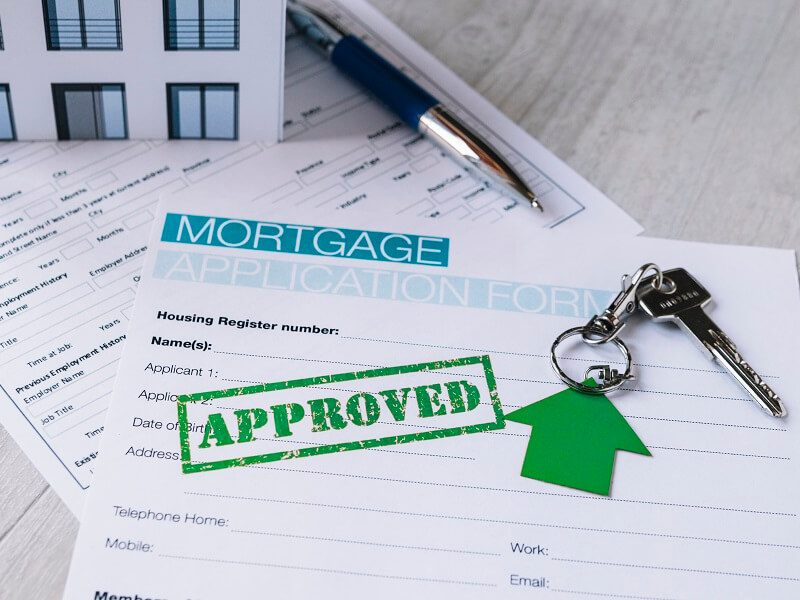
In a rising mortgage rate environment, homeowners are looking for ways to take out home equity safely. With record equity built up in homes across the country, it’s no wonder that more and more people are tapping into their home equity for cash. There are a few different ways to do this, and we will go over them in this article. We will also discuss the pros and cons of each method so that you can make an informed decision about which one is right for you.
Before you think of unlocking your home loan, you need to understand the tax impact and the costs. If you have a house and feel you are broke, there is a tendency to tap into the loan. The rising prices have made record levels of loans for US homeowners. There are three key strategies you can use:
- HELOC (Home Equity Line of Credit)
- Home equity loan
- Cash-out refinancing
But before you make any move, you should be aware of a few considerations to find which is best for your needs.
What is home equity?
Home equity is the portion of a home’s value owned outright by the homeowner. It can be calculated as the difference between the home’s appraised value and the outstanding balance on any mortgages or other liens attached to the property. Home equity can increase over time as the home’s value goes up or as the outstanding balance on the mortgage is paid down. Homeowners can tap into their home equity by taking out a home equity loan or a home equity line of credit (HELOC). Both types of financing are typically available at lower interest rates than other loans, making them an attractive option for homeowners who need to finance major expenses. However, it’s important to remember that tapping into home equity also comes with a risk: if the home’s value falls, or if the borrower is unable to make their loan payments, they could end up losing their home.
What is a home equity loan?
The first way to tap into your home equity is with a home equity loan.
A home equity loan is a lump-sum loan with a fixed interest rate secured by your home equity. Because home equity loans have a lower risk for the lender, they usually have a lower interest rate than unsecured loans such as credit cards or personal loans.
Home equity loans are also known as second mortgages. If you default on a home equity loan, the lender can foreclose on your home to recoup their losses. Home equity loans are generally used for large expenses such as home repairs, medical bills, or college tuition. Some people also use home equity loans to consolidate other debt into one monthly payment. Because your home secures home equity loans, they typically have lower interest rates and monthly payments than unsecured debt. However, you could lose your home if you default on the loan. As a result, it is important to consider carefully whether a home equity loan is a right choice for you.
A home equity loan also offers some flexibility in how you repay the loan. You can make interest-only payments for the first 10 years, lowering your monthly payments. After the 10 years, you will need to start making principal and interest payments on the remaining balance.
What is a home equity line of credit (HELOC)?
HELOC give you greater flexibility in that you can borrow, pay back the balance, and then borrow again. The loans work like credit cards, but the interest rates are lower.
The advantage of getting a HELOC is when you need continuous access to credit at lower interest rates. These rates are lower than the rates applied on credit cards and personal loans. If you have to pay regular and ongoing expenses like college tuition, debt consolidation, or home renovations, the best way to get cheap funds is to consider using a HELOC.
Another great advantage of this loan and the line of credit loan is that interest rates paid can be tax-deductible. You get the deductions if you use the funds to build, buy or improve your home. It’s under the IRS. Despite this process having great advantages, it’s also risky. The greatest disadvantage is that you use your home as collateral security for the loan. If you can’t pay the loan as agreed, the lender can repossess or foreclose your house.
Cash-out Refinancing
Another option for taking out home equity is through a cash-out refinance.
A cash-out refinance a popular way to take out equity from your home. With a cash-out refinance, you refinance your existing mortgage for more than you currently owe and take the difference in cash. For example, you have a $200,000 mortgage with a $50,000 balance. You could do a cash-out refinance for $250,000, which would give you $50,000 in cash to use as you need.
Cash-out can be used for both primary residences and investment properties, but there are some key differences to be aware of. For instance, investment property cash-out refinances typically have higher interest rates and fees than primary residence loans. In addition, borrowers will typically need to have a higher credit score and more equity in the property to qualify. However, cash-out refinances can still be a helpful tool for borrowers looking to access the equity in their property. The interest rate on cash-out refinances is usually lower than the interest rate on a home equity loan or line of credit. And, if you’re able to keep the same loan term as your original mortgage, you’ll likely have lower monthly payments because you’re spreading the loan amount over a longer period. Cash-out refinances are not right for everyone, but if you’re considering one, compare offers from multiple lenders to get the best deal.
Home equity is a valuable asset, and tapping into it can be a great way to get access to money for a variety of different needs. However, it’s important to proceed with caution when considering using your home equity as a source of financing. Some common methods of doing so include taking out a home equity line of credit, refinancing your mortgage, or even getting a cash-out refinance on your existing loan.
Before making any decisions about using your home equity, it’s crucial to do some research and fully evaluate the different financing options available to you. In particular, it’s important to consider the interest rate you will be charged and what the repayment terms will be like. Additionally, it’s important to think carefully about how any associated fees might impact the overall cost of taking out this type of loan. By doing your homework ahead of time and making well-informed choices about home equity financing, you can tap into this resource safely and effectively.
What is your right option?
Your best loan option will depend on how you will use the money. It also depends on knowing the exact amount of money you need to borrow. The following are the options you can consider:
Debt consolidation
You can use your loan to refinance the high-interest debt. Here you will borrow the exact amount you need. You will also have fixed monthly repayments that come at fixed interest rates. It makes it easy to budget for them. For HELOC, monthly repayments increase, making it hard to repay the loan when you have a fixed budget.
Home renovations
The renovation projects rely on the amount you need. You can use the home equity or cash-out refinancing if you know the amount. For ongoing projects, then the best option is the HELOC. You will be able to borrow more money if the project exceeds the budget.
Paying school/college fee
HELOC is the best option if you decide to pay school fees using the home loan. For school fees, it’s hard to state the exact amount needed for the payment. It’s important to use a loan that permits borrowing as the need arises.
How to increase your loan value
Do you want home equity, but you don’t meet the lender’s LTV threshold? The following tips will enable you to boost your loan amount.
Pay off your mortgages
The easiest way to increase your loan is to pay all your mortgages faster than anticipated. Though it’s hard to make payments once, you need to increase your monthly payments. You can also increase the payment times in a year. It’s a process that will help you clear the debt within a short time and increase your loan. It will also save you the extra cash you could have paid in interest. Before you opt for this method, confirm with your lender to know if there is any penalty for earlier mortgage payments.
The extra payments you make on the principal mortgage are the easiest way to boost your value. Every coin you pay on your mortgage increases your value with the same value the coin holds.
Boost your home value
Invest in interior remodeling, solar panels, landscaping, and technology to enhance your home’s energy efficiency. Before spending on any remodeling project, make sure that the improvements will double your return on investments. You can fix the kitchen, build patios and replace the roof to increase the property value.
Increasing the home value increases the equity even without altering the money you owe. Remember, not all renovations will increase your property value and increase the ROI simultaneously.
Refinance shorter loans
Can you make higher monthly repayments for your mortgage? Consider refinancing short-term loans. If you have a 20-year mortgage, switch to a 7-year mortgage that you can pay sooner. It will build your property loan. You need to remember that refinancing shorter loans increases your monthly payments. Make sure you will be able to pay these expenses.
Improving the credit score
Although this step won’t improve your loan value, it allows taking extra money. regardless of the amount you owe, a poor credit score will limit the amount you can borrow. Most lenders perceive homeowners with negative credit scores as risky and unable to pay the loans. Pay your bills on time to boost your credit score.
Make use of the market changes
The real estate markets fluctuate over time, which applies to your home value. As the demand for homes rises, the prices increase, increasing the home value. An increase in your home value is an increase in your home loan.
You need to keep watch of your home value to help you stay informed on when to go for a loan when the property value is high.
Other considerations to check
Home values can quickly change
You need to be keen on home values because they change often. If you take a huge loan, then your home’s value drops, and you will be in trouble.
Home loan rates are low
The rates are lower than in other loans like credit cards. You will be able to use the house as collateral security.
Your property is on the line
If you borrow money when the rates are low, ask yourself how you will deal with the loan the next time when rates are higher. If you aren’t able to handle the excess expenses, don’t take it. You may reduce your credit score and / or lose your property.
Conclusion
So, which one is right for you? That depends on your circumstances. If you need cash now and don’t mind putting your home at risk, a HELOC may be the way to go. If you want to avoid putting your home at risk and can wait longer to get the cash you need, a cash-out refinance may be better. Whichever way you choose to tap into your home equity, be sure to do your research and understand the risks involved before making any decisions.
